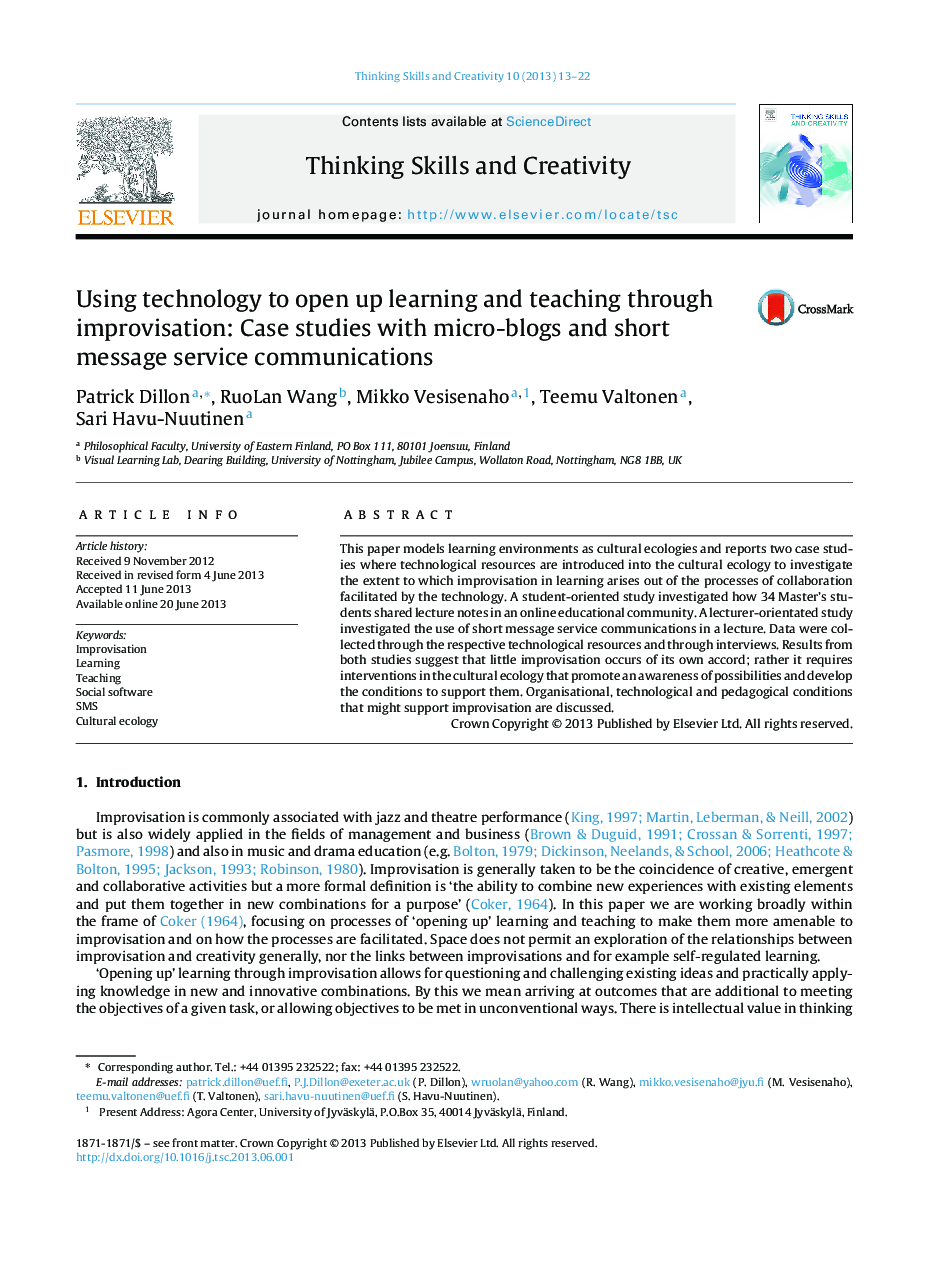| Article ID | Journal | Published Year | Pages | File Type |
|---|---|---|---|---|
| 375629 | Thinking Skills and Creativity | 2013 | 10 Pages |
•Potentially both teachers and students are simultaneously improvisers and performers.•Improvisation requires a supportive infrastructure and an awareness of possibilities.•Risk taking is an important condition for improvisation.•Adaptability is required for breaking out of routines and providing ‘improvisational space’.•Co-development between all actors is required for a pedagogy that stimulates improvisation.
This paper models learning environments as cultural ecologies and reports two case studies where technological resources are introduced into the cultural ecology to investigate the extent to which improvisation in learning arises out of the processes of collaboration facilitated by the technology. A student-oriented study investigated how 34 Master's students shared lecture notes in an online educational community. A lecturer-orientated study investigated the use of short message service communications in a lecture. Data were collected through the respective technological resources and through interviews. Results from both studies suggest that little improvisation occurs of its own accord; rather it requires interventions in the cultural ecology that promote an awareness of possibilities and develop the conditions to support them. Organisational, technological and pedagogical conditions that might support improvisation are discussed.
